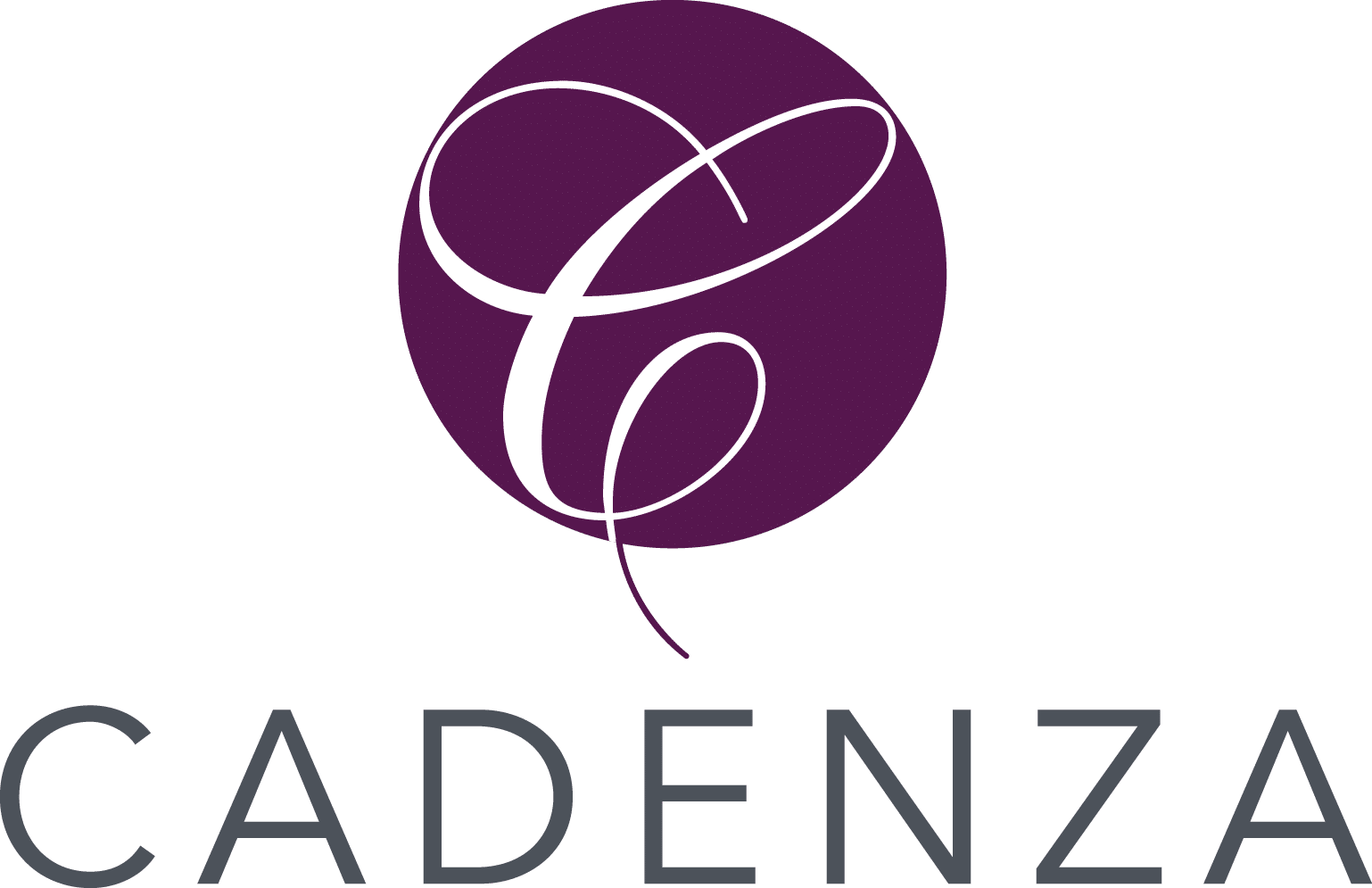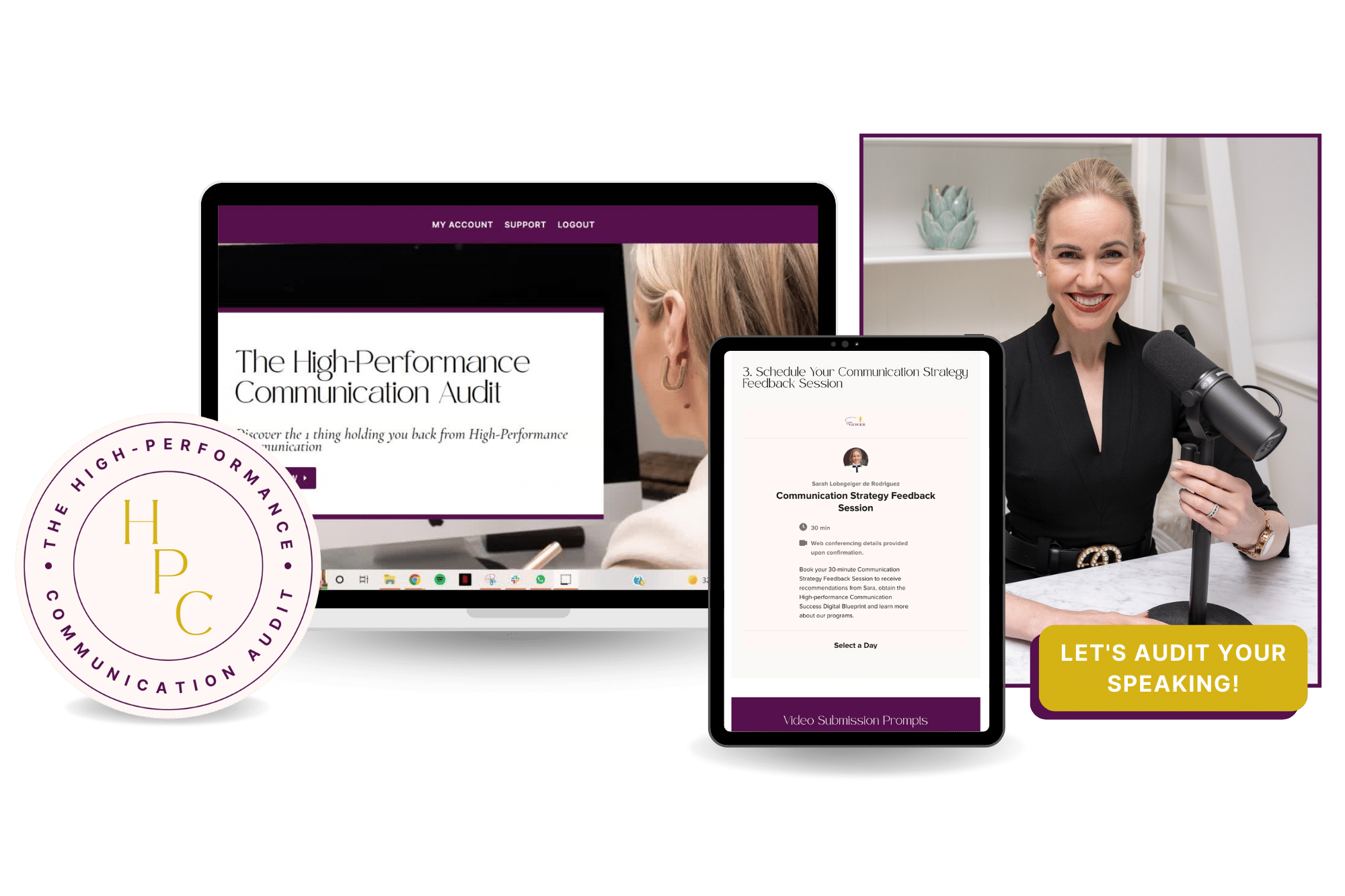Career Communication
32 Leadership Soft Skills that will Protect your Value at Work
The definitive guide to the top leadership soft skills that lead to influence and impact at work from an executive speaking consultant.

Today I want to share with you a definitive guide so that you can start envisioning communication goals that will protect your career, reputation at work and ensure that you have the upper hand in case a robot revolution is imminent.
I’ve provided the complete epic list of 32 skills and have started to map out further strategy based info to guide you in your skills development as an exceptional leader, however please note, this blog is an ongoing project, more content is being added regularly to flesh out each of the 32 soft skills so be sure to check back regularly for the latest information and satellite posts that relate to each of these skill areas.
This blog post is best digested in 3 parts:
- Check the tips for summarised below
- Do you need to work at how you showcase your expertise, experience and values as a new, emerging or established leader? Check our High-Performance Communication Audit which equips you with a detailed personal development plan and research informed goals that will markedly change your professional interaction skills.
Why you’re going to need more than soft skills to communicate effectively at work
The problem with all the soft skills list you can find on the internet is that the don’t take into account the contextual nature of communication.
So let’s establish some ground rules for how to use this list.
I’d recommend using this list as a glossary of terms more than a playbook for uplevelling interactions at work to protect your influence and impact. If you want to nail your professional communication skills I suggest focusing on key environments, personalities and processes, rather than getting a grocery list full of dream ingredients.
What do I mean by this? Well let’s take this example…
Juan downloads a list of soft skills on the internet to flesh out his resume and stand out from the crowd. As he reads through the list he nods his head in affirmation at each skill that he believes his mastered and it goes something like this…
Active listening – yes
Collaboration – yes
Emotional intelligence – yes.
And so on.
While a list like this is the perfect tool to prep a cover letter or resume list of soft skills you believe you’ve mastered, it won’t cinch your interactions at work.
Now, if you want to plug your soft skills more effectively at work, it’s better to use a process model that takes into account the people you’re interacting with (who are you speaking to: peers, cross disciplinary colleagues, the board, your manager, your direct reports)?, the environment where it’s happening (team meeting, stand-up Friday meeting, conference, phone call) and the process (investor pitch, pay scale negotiation, assertive statement to set work load boundaries, answer to an unexpected question that questions your expertise). Each of these specific contexts frame different requirements and approaches. Professional communication agility that builds influence and impact is more nuanced than a resume list of soft skills!
Having a grocery bag full of eggs, flour, gruyere, butter, garlic and cream does not make a quiche- you need to know the measure, the application, the timing and temperature to pull a winning dish out of the oven, and the same can be said for your interactions at work!

Optimise your Voice Tone, Boost Your Delivery & Express Yourself Better.
I’ve provided speaking assessment and modern elocution training to people from all sorts of professions at different stages in their career path from middle management through to company directors.
Stop feeling second class in the office, because your ideas aren’t. You just need to learn to speak with authority, vocal charisma & clarity. My tools will show you how.
Failure to invest in your leadership soft skills will almost always inevitably increase the risk of workplace toxicity.
Below you can find the top 32 soft skills I’d be considering but take my recommendation as a communication scientist and always embed these skills in real life scenarios. When you skim through, instead of nodding and affirming that “yeah, I’ve got that one, yep, got than”, let’s be more thorough!
Key Questions
#1 What’s one environment/ scenario where I have evidence of using this soft skill successfully?
#2 What’s one environment/ scenario where I have evidence of not applying this soft skill successfully?
If you stop and gather evidence for positive and negative outcomes for each soft skill, you’ll ensure that this blog post isn’t redundant. Simply reading the list to put tickets on yourself won’t help you to stand out from the pack.
Afterall, just like there are two kinds of people: those who finish their sentences, and those who don’t.
Some people do the same when it comes to their communication growth.
They devour professional communication articles and leave it at that.
The best leaders can manage themselves, so here’s your chance to investigate growth areas and set some communication objectives in place to up the ante so that you can enhance your credibility and positive impact and in so doing, the greater good.
The definitive list of Leadership Soft Skills that keep you relevant and relatable and grow your influence and impact in the competitive workplace.
QUALITIES:
- Adaptability
- Responsibility
- Courtesy
- Integrity
- Trustworthiness
- Work Ethic
Volitions:
- Willingness to learn
- Good attitude under pressure/ uncertainty
Problem Solving:
- Decision making
- Analytical thinking
- Innovative thinking
- Creativity
- Critical reasoning skills
- Ability to plan and achieve goals
LEADERSHIP SKILLS & MANAGING SKILLS:
- Self -awareness
- Self regulation
- Mentoring skills
- Coping skills
Interpersonal SKILLS:
- Conversational skills
- Rapport building
- Team engagement skills
- Productive interpersonal interaction skills
- Perspective taking
- Emotional intelligence
Communication SKILLS:
- Negotiation
- Conflict resolution
- Persuasion
- Storytelling
- Charisma
- Advocacy
- Diplomacy
- Assertiveness
Physical Attributes:
- Professional appearance
Adaptability
This soft skill relates to your ability to approach changes and differences of opinion with tolerance and agility. In the current climate, change resistant individuals run the risk of losing relevance in most industry, especially where the pace of innovation has skyrocketed.
Build this skill at work and you will instantly flex your ability to project openness and affability, 2 key ingredients that fuel executive presence.
How to fast-track this soft skill: You can integrate this skill briskly if you focus on building up openness and cognitive flexibility. Change resistant individuals struggle to use feed forward thinking and get stuck in set, focusing on the one way to do things.
At CADENZA we train our clients to implement a process model into their communication interactions that invites cognitive curiosity and openness by increasing the use of speaking structures that create open questions, cognitive decompression (if you’re frustrated by sudden changes to your expectations you won’t be able to train your adaptiveness if you can’t first self regulate) as well as social intelligence cues to build increased mutuality when faced with ideas you feel personal resistance to.
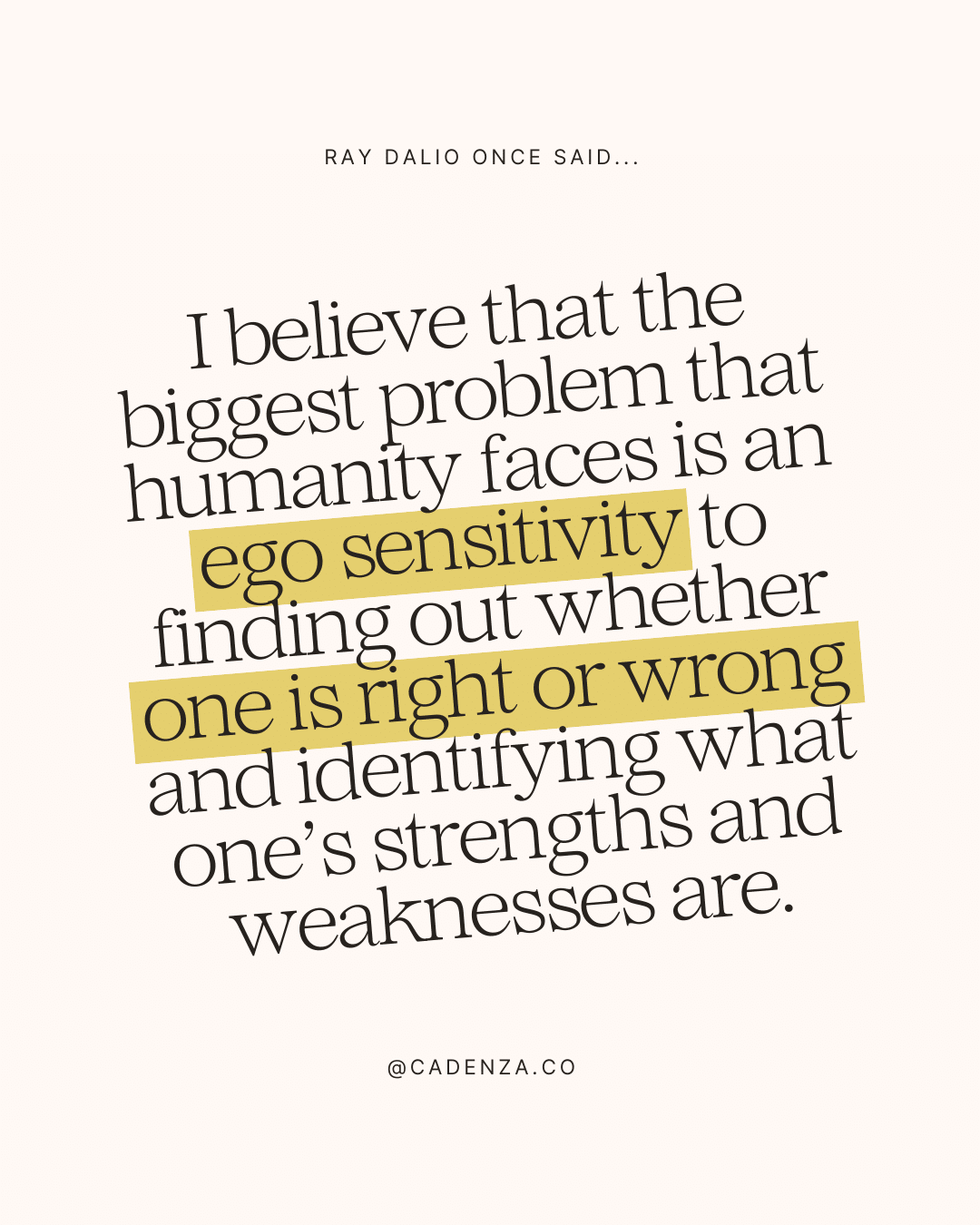
🚨 What you risk losing if you ignore this soft skill:
- Rapport
- Visionary thinking
- Creativity
- Agreeableness
- Forward thinking
- Self regulation
- Professional reputation management
Responsibility
Build this skill at work and you will instantly flex your ability to project competence and trust, vital aspects needed to showcase your leadership potential.
How to fast-track this soft skill: You can showcase this skill briskly if you take care to do what you say you will. Take care of over-committing, reneging or retracting offers because follow through feeds the impression of responsibility.
Leadership comes with enormous responsibility that extends beyond the scope of you and your career path.
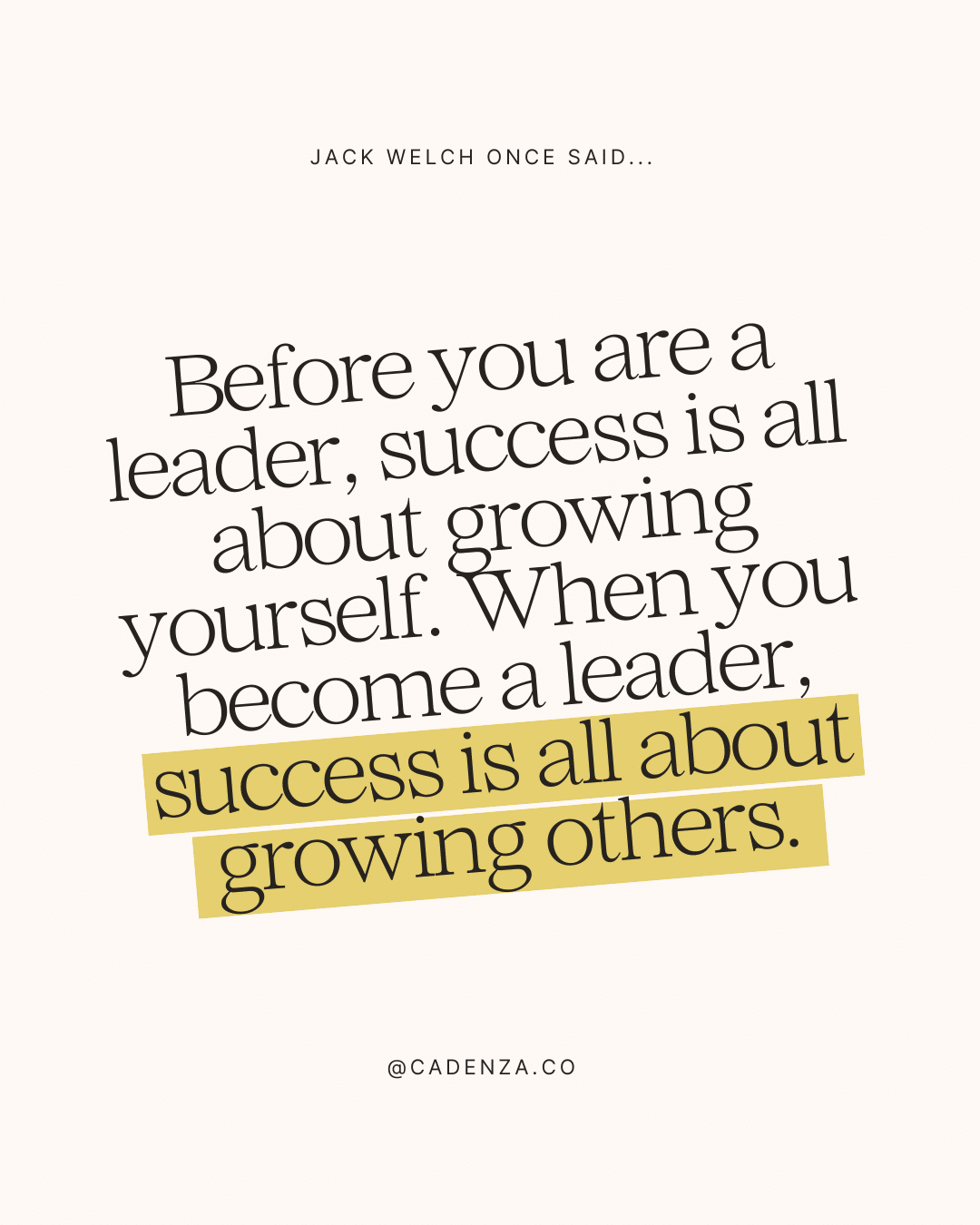
If you’ve fallen victim in corporate to “abusive supervision, bullies, derailed leaders, psychopaths and toxic leaders (Choi, et al. 2022), you’ve seen the outcome of leaders that shirk on responsibility.
Destructive leadership all starts with a repetitive negative behaviour that lacks responsibility and it decimates team member’s health, engagement and motivation as well as causing organisational efficiency, goals and resources to nose-dive (ibid).
🚨 What you risk losing if you ignore this soft skill:
- Credibility
- Competence
- Trust
- Intellectual bearing
- Participation in value driven projects
- Promotional opportunities
- Professional reputation management
- Organisational efficiency
- Team members
Courtesy
After prosecuting heinous crimes of the holocaust in the Nuremberg trials, I’m pretty sure Bernard David Meltzer knew a thing or two about respect and courtesy.
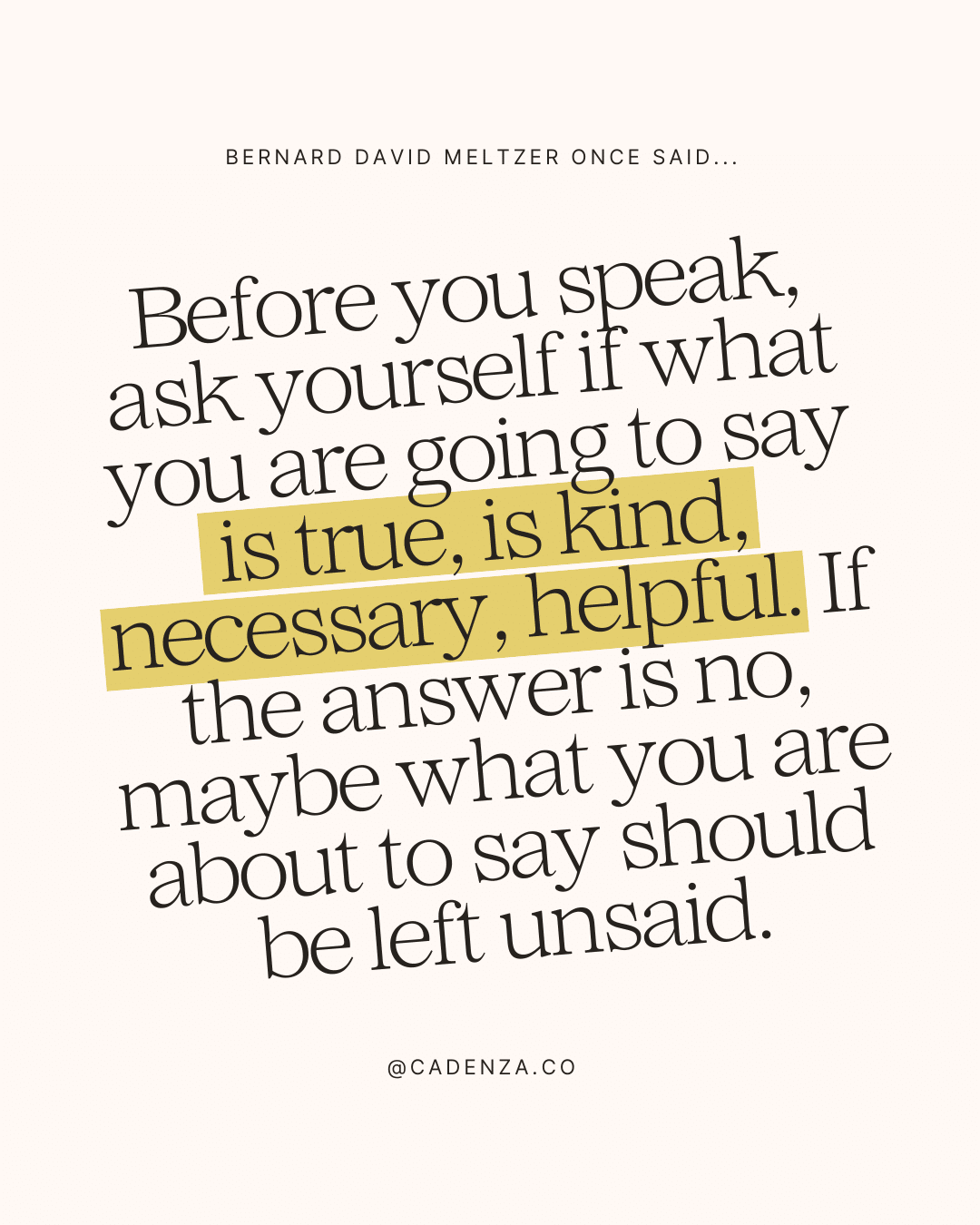
Workplace incivility will sap all your efforts as a leader to reach an outcome with your team.
Employees that fall victim to incivility are highly likely to: intentionally decrease their work effort, quality and time spent at work and some 25% are likely to relay their frustration to their customers. Incivility destroys human connections, and in so doing, the efficiency and bottom line of an organisation with an alarming toll to revenue (Pearson and Porath, 2005).
How to fast-track this soft skill: You can build this skill briskly if you implement careful frameworks to self-regulate your reactions in the workplace with all parties so that no matter the topic, personality or debacle, you retain calm composure and cordiality. Social intelligence frameworks and speaking comfort playbooks can assist you to retain your cool even if it feels like you’re herding cats!
🚨 What you risk losing if you ignore this soft skill:
- Trust
- Adherence to an ethical code of conduct
- Likeability
- Team members (fail to be cordial and I can guarantee a resignation letter is inevitable, eventually, if not pretty soon)
- Clients and stakeholders
- Professional reputation
- Collaboration
- Staff engagement
- Friendships
- Approachability
Integrity
This soft skill relates to your ability to operate on a code of conduct that involves you committing to rules of play that are testament to an inscrutable character. Integrity is best showcased when you have deeply considered values that feed the greater good such that your actions are seen as an extension of your principles.
Developing integrity is a powerful soft skill because it will set you apart from the task force by showcasing a unique form of visionary charisma which can have the capacity to inspire and captivate your colleagues, stakeholders and even the marketplace.
How to fast-track this soft skill: You can build this skill briskly if you implement intentional codes of conduct for yourself and set a strong rationale behind each that feeds the greater good. Then, allow these principles to guide your reactions, decisions and behaviour intentionally. At CADENZA, we guide our executive-speaking clients to build out their personal language tone playbook, which sets a code for their interaction style so that it is consistent as well as their charisma archetype so that their leadership communication and interaction style becomes a consistent extension of their value system. Many top-tier executives, CEOs, Entrepreneurs and founders have excellent internal principles but struggle to showcase them using visionary charisma which can result in gross misrepresentation of their motivations. Building out candid conversation structures and integrating increased conversational transparency (different from oversharing) can assist a leader to gain integrity traction with their team because their employees will notice the depth and principles behind decision-making). Fail to do this and you may get pushback for being overly focused on the bottom line, rather than values and worthwhile contributions to society, which is what most team members want in an organisation they dedicate their working hours to.
🚨 What you risk losing if you ignore this soft skill:
- Trust
- Visionary charisma
- Credibility
- Competence
- Job security
- Professional reputation

Trustworthiness
There are numerous correlates to raised trustworthiness that leaders can monitor, but overall, communication is the greatest liability. Your interactions and behaviours as well as speaking style can serve to cement or undermine trust.
How to fast-track this soft skill: One of the briskest means to heighten trust as a leader is to deliver ethical leadership (Engelbrecht, et al. (2015) which requires you to implement “moral values and ethical vision” and considering how you can showcase it through your communication tools.
Team Engagement Skills
Perspective taking
This soft skill relates to your ability to frame everything you say so that conversations are expertly positioned to consider the point of view of the person your speaking with. The ability to perspective take ensures that your conversation content will be relevant, meaningful and precise.
Build this skill at work and you will instantly flex your leadership potential and increase your reach and rapport.
How to fast-track this soft skill: You can integrate this skills briskly if you train your language structure skills to embed perspective taking deeply into your interactions. At CADENZA we train our clients to implement rapport bid and persuasive bid frameworks as well as assertive matrices and advocacy models to speed up skill development.
🚨 What you risk losing if you ignore this soft skill:
- Rapport
- Relevance
- Conveying mutuality with your team
- Building a sense of collaboration
Emotional Intelligence
Charisma
Assertiveness
You can read more about how to amplify your career progress with assertiveness skills here.
References
- Engelbrecht, A. S., et al. (2015). “The influence of integrity and ethical leadership on trust in the leader.” Management Dynamics : Journal of the Southern African Institute for Management Scientists 24(1): 2-10.
- Choi, S. B., et al. (2022). “What hinders team innovation performance? Three-way interaction of destructive leadership, intra-team conflict, and organizational diversity.” Frontiers in Psychology 13.
- Dean, Susan & East, Julia. (2019). Soft Skills Needed for the 21st-Century Workforce. International Journal of Applied Management and Technology. 18. 10.5590/IJAMT.2019.18.1.02.
- Gao, L., et al. (2011). “Leader trust and employee voice: The moderating role of empowering leader behaviors.” The Leadership Quarterly 22(4): 787-798.
- Pearson, C. M., & Porath, C. L. (2005). On the nature of consequences, and remedies of workplace incivility: No time for “nice”? Think again. Academy of Management Executive, 19, 7-25.
- Touloumakos, A. K. (2020). “Expanded Yet Restricted: A Mini Review of the Soft Skills Literature.” Frontiers in Psychology 11.
- Tur, B., et al. (2022). “Effect of charismatic signaling in social media settings: Evidence from TED and Twitter.” The Leadership Quarterly 33(5): 101476.
Did you enjoy this post? Make sure to subscribe to our YouTube channel to get more content to increase your communication skills!
About the Author
Dr Sarah Lobegeiger de Rodriguez is a Keynote Speaker, Executive Speaking Coach, and Opera Singer who likes to play with words, sounds, and your impact.
Her academic background is in Music Performance, Communication Science and Speech & Language Pathology. She assists executive communication clients all over the world as a communication consultant with strong expertise in CEO, Founder and Entrepreneur communication strategies.
Connect with Sarah on LinkedIn.
© CADENZA
Level 14, 380 St Kilda Road, Melbourne, 3004
Privacy Policy
Terms & Conditions
Position Statement on Racism
